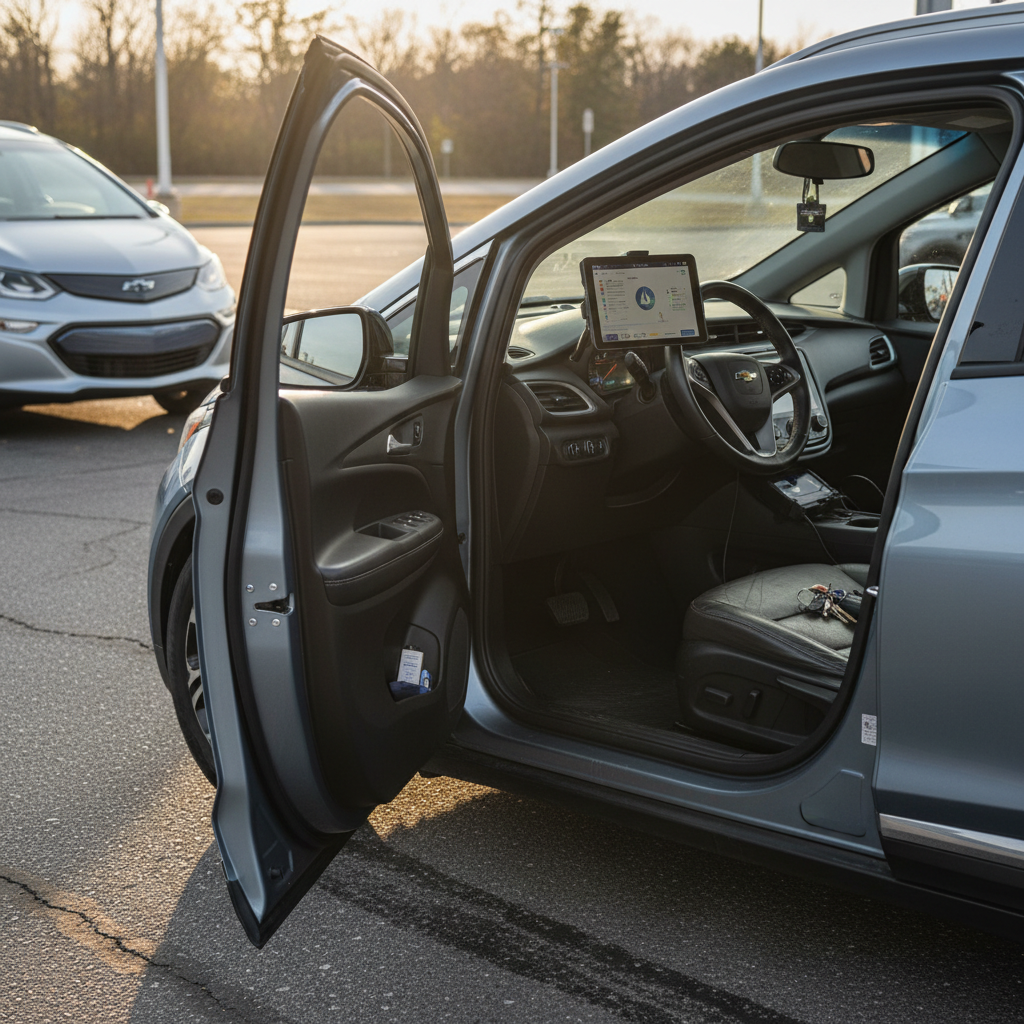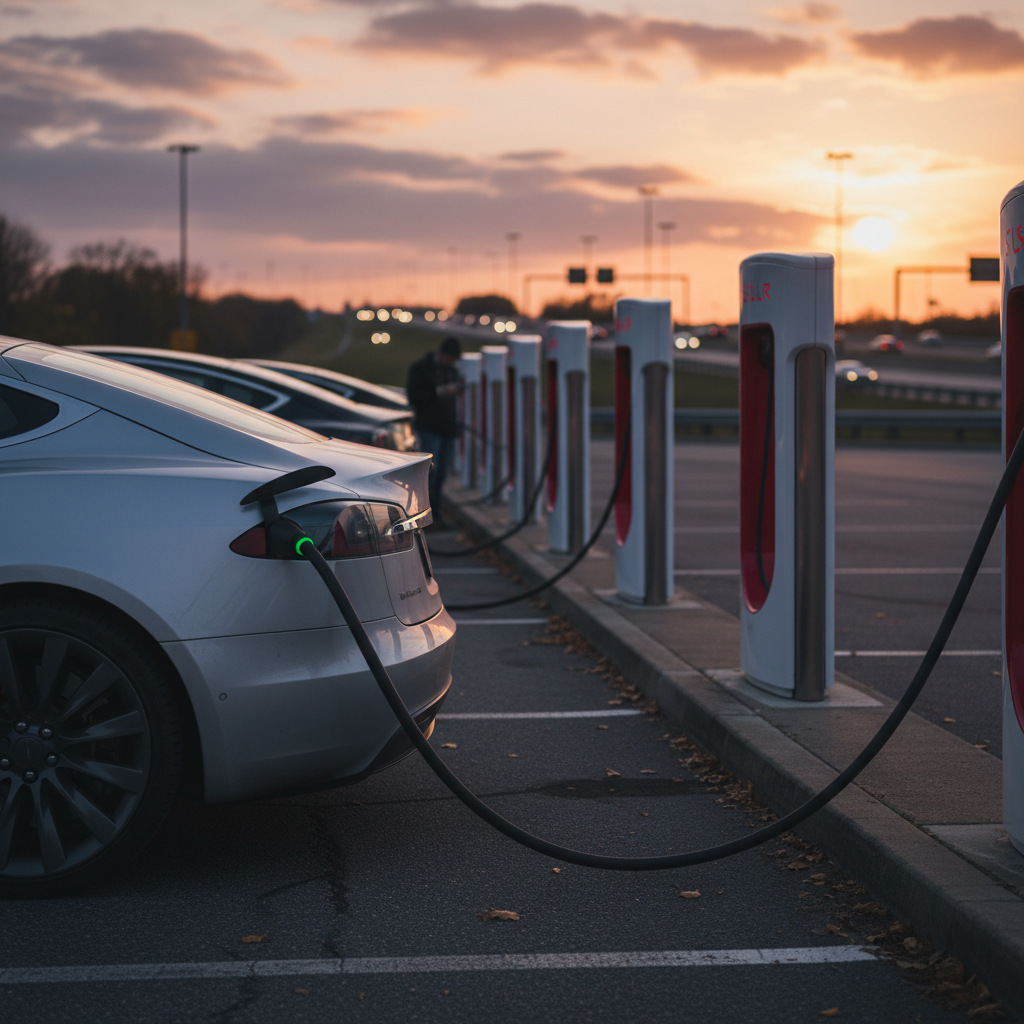If you’re asking yourself, “What’s the best used car to buy in 2025?”, you’re not alone. Between higher new-car prices, fast-evolving tech, and falling used EV prices, the smart buy today often isn’t a brand‑new SUV, it’s a carefully chosen used electric vehicle that fits your life and budget.
The market has flipped
Why the best used car to buy in 2025 is often an EV
Why used EVs are so compelling right now
This is the first time we’ve seen such a wide gap between what many late‑model gas cars cost and what similarly new, similarly well‑equipped EVs cost used. Models like the Kia Niro EV, Chevrolet Bolt EV, and Hyundai Kona Electric often sell for compact‑car money while offering modern safety tech, quiet drivetrains, and low running costs.
Think “best value,” not just “best car”
How to choose the best used car for you
1. Start with your driving pattern
Before you fall in love with a model, map your typical week. How many miles do you drive per day? Where will you charge or fuel? If most days are under 60–80 miles and you have access to home or workplace charging, an EV jumps to the top of the list. If you regularly tow, go off‑road, or drive 300+ miles in a day without reliable fast charging, a fuel‑efficient gas or hybrid SUV might still be the better fit.
2. Decide on body style and space
For many households, the best used car to buy is the one that actually fits their stuff and their life. Compact crossovers like the Hyundai Ioniq 5 or Chevrolet Equinox EV blend hatchback practicality with car‑like efficiency. Sedans such as the Toyota Camry or Tesla Model 3 work well for commuters. Families might prioritize a small SUV (Honda CR‑V, Kia Niro EV, Tesla Model Y) that can juggle kids, cargo, and road trips.
Key factors that actually decide the “best used car”
Run every candidate, gas or electric, through these filters.
Range & use case
Make sure the vehicle’s realistic range (for EVs) or fuel economy (for gas cars) matches your daily driving and road‑trip expectations.
Safety & tech
Look for modern driver‑assistance features, good crash‑test scores, and up‑to‑date infotainment so the car feels current for years.
Total monthly cost
Combine payment, insurance, energy, and maintenance. A used EV that costs a bit more up front can still win on the monthly bottom line.
Top used EVs that belong on your shortlist
There’s no single “best” car for everyone, but several used EVs consistently float to the top because they balance range, reliability, and value. Here are standouts you’ll want to test‑drive if an electric car fits your life.
Best used EVs to buy in 2025: snapshot
Approximate U.S. used‑market ranges as of late 2025. Actual prices and specs vary by year, trim, mileage, and region.
| Model | Typical used price range | Approx. EPA range (mi) | Why it’s a strong buy |
|---|---|---|---|
| Kia Niro EV | $12,000–$22,000 | ~212–239 | Excellent value thanks to steep depreciation, practical crossover shape, and solid efficiency. |
| Tesla Model 3 | $18,000–$32,000 | ~220–330+ | Huge fast‑charge network access, over‑the‑air updates, and widely available parts and service. |
| Hyundai Ioniq 5 | $24,000–$35,000 | ~220–300 | Ultra‑fast charging, roomy cabin, and long battery warranty from new give it strong long‑term appeal. |
| Chevrolet Bolt EV / EUV | $13,000–$24,000 | ~230–259 | One of the cheapest ways to get 200+ miles of EV range; great city and commuter car. |
| Hyundai Kona Electric | $18,000–$28,000 | ~258 | Compact size, strong real‑world range, and high equipment levels at used prices. |
| Tesla Model Y | $25,000–$38,000 | ~260–330 | Family‑friendly crossover with strong resale and broad charging access; often undercuts new compact SUVs. |
These EVs routinely show up on 2025 best‑used‑EV lists and offer strong value for most buyers.
Where Recharged fits in

Best used EVs vs popular used gas cars
A lot of buyers still start their search with familiar nameplates like the Toyota Camry, Honda CR‑V, and Ford F‑150. They’re popular for good reasons: durability, parts availability, and long ownership histories. The surprise in 2025 is that you can now cross‑shop those with highly capable used EVs at similar price points.
When a used EV is the better buy
- You mostly drive in town or on predictable routes under ~150 miles total per day.
- You can charge at home or work most nights.
- You want the lowest possible running costs and don’t tow heavy loads.
- You prefer a quieter, smoother drive and modern tech.
In this scenario, a used Kia Niro EV, Tesla Model 3, or Chevy Bolt EV often beats a similar‑price Camry or Civic once you factor in fuel and maintenance.
When a used gas or hybrid still wins
- You routinely tow, haul, or drive in remote areas with limited charging.
- You live in an area with little public charging and can’t install a home charger.
- You’re buying an inexpensive work truck or off‑road SUV.
In those cases, stalwarts like a Honda CR‑V, Toyota Camry/Corolla, or Ford F‑150 can still be the best used car to buy, as long as you verify their maintenance history.
Used EV prices and total cost of ownership
The headline story of the last few years is depreciation. Many EVs lost value faster than equivalent gas models as new‑car prices dropped and incentives shifted. That’s painful for the first owner, but it’s exactly why a used EV can be such a strong buy for you.
How used EVs can lower your 5‑year cost
Look beyond the sticker price to the line items that actually hit your bank account.
Fuel & energy
A typical EV converts more of its energy into motion than a gas engine does. If you charge mainly at home, your cost per mile is usually far lower than gasoline.
Maintenance
No oil changes, fewer moving parts, and less brake wear thanks to regenerative braking. You still have tires, filters, and coolant, but far fewer routine services.
Depreciation advantage
Because much of the value drop has already happened, a 3–5‑year‑old EV often has more remaining life per dollar than a similar‑age gas car that’s still depreciating quickly.
Watch fast‑charging costs
Battery health: the make‑or‑break metric for used EVs
On any used EV, the battery pack is the most important, and most expensive, component. Two identical cars on paper can have very different real‑world value depending on how their batteries were treated, charged, and stored. That’s why the best used car to buy isn’t just the model; it’s the specific car with verifiable battery health.

What’s in a Recharged Score Report?
- Ask for a recent, third‑party battery health report, not just a verbal assurance.
- Compare the vehicle’s usable range today to its original EPA rating to understand real‑world degradation.
- Avoid cars with a history of repeated fast‑charging abuse or overheating alerts when possible.
- Make sure any open battery‑related recalls or software updates have been completed.
Step‑by‑step checklist for buying a used EV
Your used‑EV buying checklist
1. Confirm your charging plan
Decide where the car will live at night and how you’ll charge it. If you rent, confirm with your landlord or HOA before you buy. If you own, price out a Level 2 home charger or confirm that a 120‑volt outlet is sufficient for your mileage.
2. Set a realistic range requirement
Write down your longest regular commute or errand loop and add a buffer for weather and detours. Shop for EVs whose real‑world range is comfortably above that number so you’re not constantly watching the gauge.
3. Get a battery health report
Treat battery data the way you’d treat an inspection on a used gas car’s engine. At Recharged, every EV includes a Recharged Score Report so you know the pack’s condition before you commit.
4. Review service history & recalls
Look for documented software updates, recall work, and routine maintenance. Ask specifically about high‑voltage system repairs and whether any warranty claims have been made.
5. Test the charging experience
If possible, plug the car into Level 2 and even DC fast charging during your test drive. Confirm that it charges at expected speeds and that the connectors and ports are in good shape.
6. Compare total monthly cost
Before signing, compare 3–5 options, including one gas or hybrid benchmark, on payment, insurance, energy, and maintenance. The best used car to buy is the one that fits your budget every month, not just on day one.
Common mistakes to avoid when shopping used
Don’t make these used‑car mistakes
- Chasing the absolute lowest price and ignoring battery or engine condition.
- Skipping a professional inspection because the car is “only a few years old.”
- Assuming every EV will fit your lifestyle without checking charging access and range needs.
- Ignoring software support and over‑the‑air update status on tech‑heavy models like Tesla.
- Overlooking tires, EVs are heavier and can chew through cheap or mismatched rubber quickly.
FAQ: Best used car to buy in 2025
Frequently asked questions
Bottom line: why a used EV belongs on your test‑drive list
If you’re trying to decide on the best used car to buy this year, start by asking how you really drive, not just what you’ve always driven. For a huge share of U.S. drivers, a used EV now delivers the best blend of price, comfort, tech, and long‑term cost of ownership, especially when you focus on proven models like the Kia Niro EV, Tesla Model 3, Hyundai Ioniq 5, or Chevy Bolt EV.
You don’t have to become a battery engineer to shop confidently, either. With transparent battery health data, fair pricing, and EV‑savvy guidance, you can choose a car that fits your life today and won’t feel outdated tomorrow. At Recharged, that’s exactly what the Recharged Score Report and our EV‑specialist team are designed to deliver, so your next used car is not just a good deal, but the right one.



